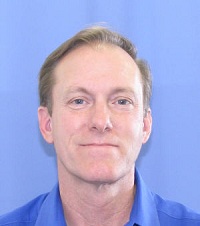
CLEARFIELD – The case against the former president of the Kephart Trucking Company, Timothy Lee Kephart, 56, of Morrisdale was discussed in motions court on Thursday.
In July, Kephart was sentenced to a minimum of eight years to a maximum of 32 years in prison and ordered to pay back more than $40,000 to his employees by Clearfield County President Judge Fredric Ammerman.
Kephart was accused of stealing funds from his employees’ 401K plans and medical insurance premiums between June of 2010 and the closure of the Kephart Trucking Company in late 2013.
On Thursday Kephart’s attorney, Chris Pentz, said he wanted to present a post-sentence motion. He also advised he’d tried to arrange for Kephart to participate via video conferencing, which couldn’t be done.
Pentz said he “made every effort” to have Kephart available. He said the case against Kephart consisted of more than 60,000 pages of documents, and it would be helpful to have Kephart available due to his familiarity with them.
Pentz said he wanted to present a post-sentence motion on the complicated issue of restitution, a matter discussed at length in court prior to Kephart’s sentencing in July. He said it would involve a lot of information on medical bills, premiums, etc.
Clearfield County District Attorney William A. Shaw Jr. said he believed video conferencing was possible but an issue to be resolved by the IT Departments. At the same time, Shaw also commented that there might not be a need for a hearing.
Ammerman then directed for the case to be rescheduled for a future session of court.
During Kephart’s restitution hearing in July, several of his long-time employees addressed the court. Employees said the trucking company started out as “family-oriented” and one they were all proud to work for. However, employees said when Kephart took over for his father it became “a terrible place to work.”
Employees said they experienced significant financial stresses from not being paid and losing their medical insurance coverage. Employees spoke about how it became extremely difficult to pay their every day bills and to put food on the table while also facing unexpected medical bills that they became responsible for.
Employees said they experienced additional stress when they started to receive phone calls from collection agencies. “[Kephart] left many lives in shambles,” one employee said. Employees said they didn’t believe Kephart felt any regret or remorse for what he had done to them over the years.
Ammerman said at the July hearing that he’d received 32 letters from Kephart’s employees or family members on their behalf. He said many expressed the same themes of showing loyalty to the trucking company and having Kephart leaving them dealing with financial stresses and depression.
Also during the hearing, Shaw said that the commonwealth was seeking more than $40,000 in restitution in regards to employees’ medical bills. He pointed out that total restitution exceeded $300,000 for the case; however, Kephart had voluntarily surrendered his own 401K to pay back his employees.
When Kephart testified at the hearing, he disputed that he owed his employees any restitution for medical bills. Shaw countered, arguing that Kephart allowed employees to believe they still had medical insurance coverage when in fact they did not. Shaw also said Kephart didn’t notify his employees that their medical insurance was cancelled until September of 2013.
According to the affidavit of probable cause, Kephart was the president of the Kephart Trucking Company and handled its daily operations. While he was the company’s president, his employees’ paychecks indicated funds were being withheld for 401Ks and medical insurance.
However, these withholdings were held in the trucking company’s checking account and instead used for other expenses. This, in turn, caused a shortage in the individual 401K funds, as well as a break in the payment of medical insurance premiums.
More specifically, 401K plans were behind and not funded by Kephart from November of 2011 through February of 2012. Because Kephart neglected to pay medical insurance premiums, the insurance company cancelled his employees’ coverage retroactively, and numerous employees became responsible for unexpected medical bills.
Also, employees told police that Kephart hadn’t paid some for days of service and vacation pay. After the completion of an extensive investigation, police determined 131 victims were affected by Kephart’s actions.
According to the affidavit of probable cause, the victims told police that Kephart had admitted funds were missing and promised that he’d pay them all back.
In spring of 2012, the Kephart Trucking Company needed funds and utilized an investor group based in Lancaster. Representatives for the investor group told police that they had put more than $6 million into the Kephart Trucking Company with specific funds to cover employees’ 401Ks, which were short.
A contractor also told police that Kephart made personal checks out for a $300,000 barn behind Kephart’s residence to house his horses. At times Kephart’s checks would bounce, and he’d directly transfer money. However, the contractor indicated to police that he wasn’t certain from which account Kephart transferred payment out of.